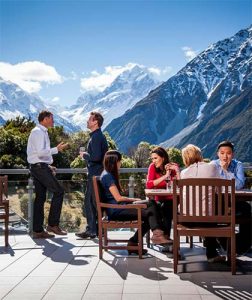What languages do you speak in New Zealand?
There are three official languages in New Zealand
Speaking English in New Zealand
English has long been the predominant language and the sole official language in New Zealand. It is the main language spoken in parliament, the courts, and the education system, and is spoked by over 96% of the population.
Speaking Māori
Historically, the Māori language had no place in schools and work environments, but the dedication of local communities, the strong bond within Māori tribes, and more recent government initiatives have contributed towards a revival. The Māori language has been an official language by statute since 1987, as defined by the Maori Language Act 1987. As such, it can be used in legal settings though proceedings are recorded in English. Just under 4% of the population is able to hold a conversation in Māori today. Many Māori words have found their way in every day English, such as Kia ora (greeting), whānau (family) or tamariki (children).
Sign Language in New Zealand
New Zealand sign language has been an official language by statute since 2006, with over 20,000 New Zealanders confident in their abilities to have a conversation.
Minorities' languages
The diversity of the New Zealand population also means that many languages coexist within minorities, including Samoan, Hindi, Chinese, French, etc. with around 19% of the population proficient in more than one language.
Kiwi slang
Like every other country, New Zealand has several idiomatic expressions that are unique to our country, such as:
 Barbie - Barbeque
Barbie - Barbeque- Bush - Forest (usually native trees)
- Down Under - Australia, New Zealand
- Good as Gold - Affirmative
- Haere Mai - Welcome
- Heaps - A lot, tons of
- Hows it going mate? - how are you buddy?
- Knackered - Exhausted
- Op Shop - Second hand shop
- Pouring down - Heavy rain
- Ripped off - Paid too much
- Sweet As - Very good
- Togs - Swimwear
- Yay nay - open to interpretation!


